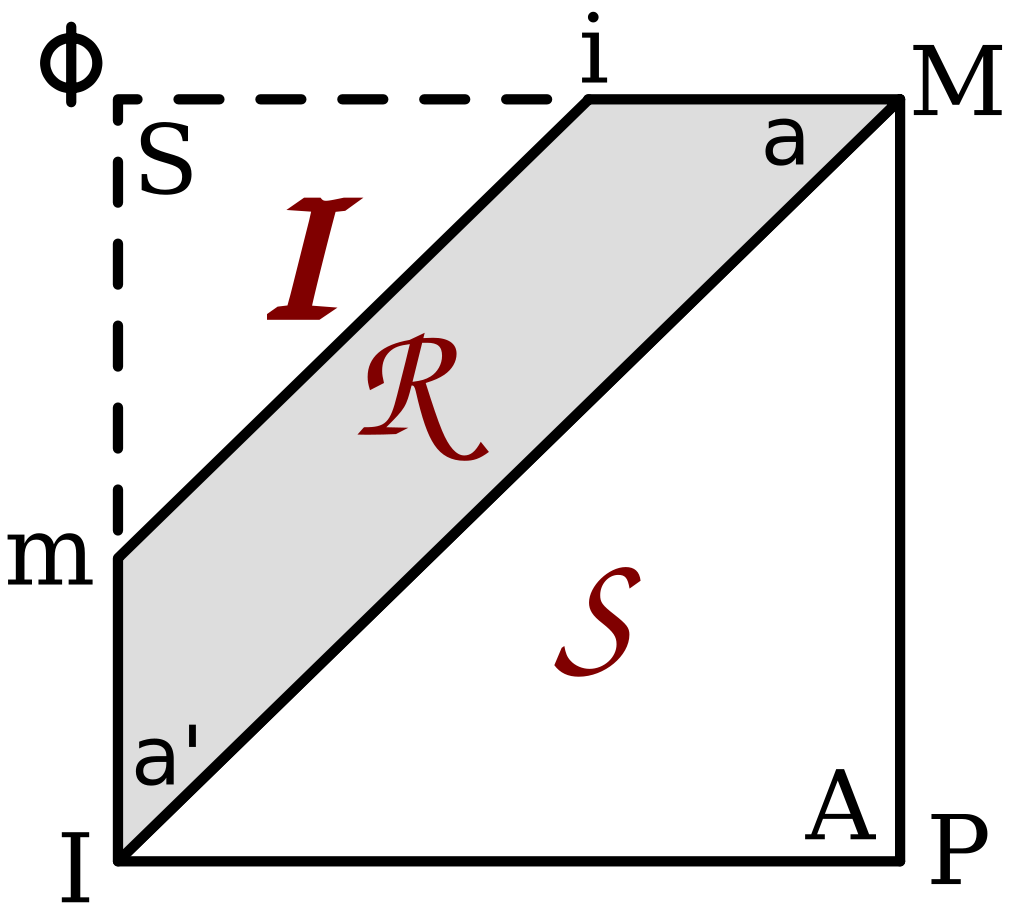
サ イバースペース
Cyber-body and/or Body in Cyber space

サ
イバー・スペースとは、電脳空間ともいう。サイバースペースとは、ICT
ネットワークの中で想定されている時間と空間のことである。
電 脳環境(Cyber-Environment)や電脳文化 (Cyberculture)的状況 に深く関わった人びとの間では、人びとの身体感覚とそれにもとづくリアリティが、電脳空間(Cyberspace)外においても変容し続けているという主 張があり、インタービューや参与観察などの民族誌的手法による実証的研究の蓄積も進んでいる。このページは、これらの研究に関する情報ノードの提供を目的 として設置するものである。
【辞 書的意味】the notional environment in which communication over computer networks occurs.【例文】 "I stayed in cyberspace for just a few minutes"
| "Cyberspace is a concept describing a widespread, interconnected digital technology. The term entered the popular culture from science fiction and the arts but is now used by technology strategists, security professionals, government, military and industry leaders and entrepreneurs to describe the domain of the global technology environment, commonly defined as standing for the global network of interdependent information technology infrastructures, telecommunications networks and computer processing systems. Others consider cyberspace to be just a notional environment in which communication over computer networks occurs.[1] The word became popular in the 1990s when the uses of the Internet, networking, and digital communication were all growing dramatically and the term cyberspace was able to represent the many new ideas and phenomena that were emerging.[2] As a social experience, individuals can interact, exchange ideas, share information, provide social support, conduct business, direct actions, create artistic media, play games, engage in political discussion, and so on, using this global network. They are sometimes referred to as cybernauts. The term cyberspace has become a conventional means to describe anything associated with the Internet and the diverse Internet culture. The United States government recognizes the interconnected information technology and the interdependent network of information technology infrastructures operating across this medium as part of the US national critical infrastructure. Amongst individuals on cyberspace, there is believed to be a code of shared rules and ethics mutually beneficial for all to follow, referred to as cyberethics. Many view the right to privacy as most important to a functional code of cyberethics.[3] Such moral responsibilities go hand in hand when working online with global networks, specifically, when opinions are involved with online social experiences.[4][5] According to Chip Morningstar and F. Randall Farmer, cyberspace is defined more by the social interactions involved rather than its technical implementation.[6] In their view, the computational medium in cyberspace is an augmentation of the communication channel between real people; the core characteristic of cyberspace is that it offers an environment that consists of many participants with the ability to affect and influence each other. They derive this concept from the observation that people seek richness, complexity, and depth within a virtual world." - Cyberspace. | サイバースペースとは、広範囲で相互接続されたデジタル技術を説明する
概念である。この言葉はSFや芸術から大衆文化に入ったが、現在は技術戦略家、セキュリティ専門家、政府、軍、業界のリーダーや起業家がグローバルな技術
環境の領域を説明するために使用しており、一般的には相互依存する情報技術インフラ、通信ネットワーク、コンピュータ処理システムのグローバルネットワー
クの略と定義している。サイバースペースは、コンピュータネットワークを介した通信が行われる想定上の環境に過ぎないと考える人もいる。この言葉は、イン
ターネット、ネットワーク、デジタル通信の利用がすべて劇的に増加した1990年代に広まり、サイバースペースという言葉は、多くの新しいアイデアや現象
を表現することができたのである。社会的経験として、個人がこのグローバルなネットワークを利用して、交流、意見交換、情報共有、社会的支援、ビジネス、
行動指示、芸術的メディアの作成、ゲーム、政治的議論などを行うことができます。彼らは、サイバーノートと呼ばれることもある。サイバースペースという言
葉は、インターネットや多様なインターネット文化に関連するものを表現する従来の手段になっている。米国政府は、相互に接続された情報技術と、この媒体を
介して動作する情報技術基盤の相互依存ネットワークを、米国の国家重要インフラの一部として認識している。サイバースペースを利用する個人の間では、サイバー倫理(cyberethics)
と呼ばれる、すべての人にとって相互に有益な共有ルールと倫理の規範が存在すると考えられている。多くの人は、プライバシーの権利は、サイバースペースの
機能的なコードにとって最も重要であるとみなしている。このような道徳的な責任は、グローバルなネットワークとオンラインで仕事をするとき、特に意見がオ
ンラインの社会的経験に関わるとき、密接に関係する[と思われる]。チップ・モーニングスターとF・ランドール・ファーマーによれば、サイバースペースは
技術的な実装よりも、むしろ社会的なインタラクションによって定義されるものだという[というのはもっともなことだ]。彼らの考えでは、サイバースペース
における計算媒体は、現実の人間同士のコミュニケーションチャンネルの拡張であり、サイバースペースの中核的な特徴は、互いに影響を与え、影響を及ぼす能
力を持つ多くの参加者からなる環境を提供することだからである。彼らは、人々が仮想世界の中に豊かさ、複雑さ、深さを求めるという観察から、この概念を導
き出している。 |
| Cyberspace. | https://www.deepl.com/ja/translator |
マーシャル・マク ルーハン流に言うと、サイバー・スペースは、直接、我々と身体感覚(五感プラス第6感目のサイバー感覚[Cyber-cence])に訴えるの で、文字情報の読解にもとづく「リテラシー」の意味は、サイバース ペースでは完全に解体する。これは、サイバースペースに「適応」するために、人間がサイボーグ 化した結果である。
サ イバースペース=ポストモダンにおけるデジタル化した〈想像界=I〉すなわ ち「「日常」「平和」「不幸」といった、人であれば誰しも漠然とイメージできるけれど も、その正確な描写となると大変な労力を要するような対象と世界を指しており、かつわれわれが頭で思っているもの」をいう。そのようなサイバース ペースは、ジジェク的に言えば両義的である。また、文学空間は、サ イバーカルチャーが誕生する以前から、サイバー空間すなわちサイバースペース的な性格をもつとおもわれてきた実体であり、今後、その間の比較研究が求めら れるだろう。
 「したがって、サイバースペースは根元的に両義的な状態にあると言えるでしょ
う。サイバースペース
は〈現実界〉を排除する手段として、また障害のない想像的な空間を排除する手段として機能すること
ができる一方で、同時にまた、その排除によって自分の社会的現実の経験を構成する、〈現実界〉への
アプローチを可能にする空間にもなりうるのです。サイバースペースはトラウマから逃れられる方法でもあ
り、またそのトラウマを定式化する方法でもあります。そしてこの意味で、これに続くのがワーグナー
の『パルジファル』に見られるパラドクスであり、そこでの傷は突き刺した槍でしか癒されることはで
きないのです。一方には、一種の想像的な内的循環運動に陥ってしまう危険がありますが、しかし他方/
において、サイバースペースはまさに私が先に想像的な〈現実界〉と呼んだものからすると、まさしく
〈現実界〉と遭遇するための空間を切り開いているのです。すなわち、幻想の〈現実界〉は私たちが現
実から締め出しているトラウマ的な次元なのです」(ジジェクとデイリー 2005:141-142)
「したがって、サイバースペースは根元的に両義的な状態にあると言えるでしょ
う。サイバースペース
は〈現実界〉を排除する手段として、また障害のない想像的な空間を排除する手段として機能すること
ができる一方で、同時にまた、その排除によって自分の社会的現実の経験を構成する、〈現実界〉への
アプローチを可能にする空間にもなりうるのです。サイバースペースはトラウマから逃れられる方法でもあ
り、またそのトラウマを定式化する方法でもあります。そしてこの意味で、これに続くのがワーグナー
の『パルジファル』に見られるパラドクスであり、そこでの傷は突き刺した槍でしか癒されることはで
きないのです。一方には、一種の想像的な内的循環運動に陥ってしまう危険がありますが、しかし他方/
において、サイバースペースはまさに私が先に想像的な〈現実界〉と呼んだものからすると、まさしく
〈現実界〉と遭遇するための空間を切り開いているのです。すなわち、幻想の〈現実界〉は私たちが現
実から締め出しているトラウマ的な次元なのです」(ジジェクとデイリー 2005:141-142)
〈想 像界=I〉=(承前)。〈現実界=R〉=「現実とはけっして言語で語り得ないものであ るが、同時に人間は現実を言語によって語るしか ない、という一見逆説的なテーゼが成り立つ」ような世界。〈象徴界=S〉=「人 間存在を根本的に規定する言語活動(langage)の場のこと。また、数学などもこれに含まれ、言語活動によって形成される人間のつながりを大文字の他者(A)と名づけている。これは、自己と他者をつなげる共通の第三者 としての言語を指している。大文字の他者も言語活動の一部であることから、象徴界に属する」(→「ラカンの欲望グラフ」)。
「—— ではサイバースペースは〈現実界〉に遭遇する(あるいは回避する)ため のも であるだけではなく、〈現実界〉を経験するためのもうひとつの方法でもあるわけですね(デイリー)。 ——(ジジェクの応答)サイバースペースにおける〈現実界〉の経験に関する標準的な定式は、一種の物理的な制約や身体の 惰性inertiaという観点からになりがちです。その考え方は、どれほど深くあな たが仮想現実にのめり 込んでいようとも、それでもあなたは抽象化されえない現実の身体(老化や機能的な衰弱などをおこす 傾向がある)をともなっており、またそれゆえに人聞が仮想的な存在へと変容するグノーシス的な夢は 不可能である、というものです。しかしこの身体の残余が〈現実界〉の究極の地平を構成しているとは 思っていません。それどころか〈現実界〉はサイバースペースそのもののなかであなた が遭遇する不可 能性として再定義されるべきなのです。それは厳密に言えばサイバースペースに内在しているのです。(改行) 例えば、サイバースペースにおいて一つの起こりうる〈現実界〉との遭遇は、いわば 「現実の生」に 逃げ帰るほどに極端な空想の構築物ということになるでしょう。これと似たようなことはフロイトによ る父親の夢の事例のなかでも起こっています。「父さん、ぼくが燃えているのが見えないの?」と息子 が自分を責める夢を見た父親は、このトラウマ的な遭遇を回避するために目を覚ます、というものです。 サイバースペースの場合、私たちはつねに自分たちの空想の空間を基本的に調和のとれたものにするア//プ ローチの可能性を示唆されることになります。しかしラカンが指摘するように、根本的 な空想は決し てひとが完全にそれらを主観化することはできないという意味で耐えがたいものなのです。ですから 〈現実界〉は単に象徴化にとって外的な極限なのではなく、それは厳密には象徴化に内在するものなの です。象徴化そのものによって生み出されたギャップなのです。この意味で〈現実界〉 は、象徴的な織 物との関係においてほとんど脆弱と言ってもよい特質があると言えるでしょう」(ジジェクとデイリー 2005:142-143)
ま た、サイバースペースは、不安を我々に引き起こすメディア=媒体である。
911 の衝撃も(311のツナミ映像も)世界中のほとんどの人は、サイバース ペースの空間で経験した——これらの映像は音声と映像が奇妙な協調と非協調の関係を見事に表現する。
▲
—— ある意味で、遺伝子工学/サイバースペースの時代は哲学の時代だというこ とですか(質問者:グリン・ディリー, p.77)。
—— ええそうです。もう一度言うと、ある意味で哲学の時代というのは、私たち が日常生活のレヴェルで 哲学的な問題にますます直面している時代なのです。これは日常生活から哲学的膜想の世界に閉じこも ってしまうということではありません。それどころか、哲学的な問いに応えなければ日常生活そのもの のなかで自分の道を見出すことができないということです。ある意味で、すべての人々が何らかの哲学 者にならざるをえないという、他に類をみない時代であると言えるでしょう(回答者:スラヴォイ・ジジェク, p.78)。
● リアルと現実の「誤った対立」
「こ
の誤った対立は、サイバースペースに関する楽観的かつ悲観的な姿勢の根底
に典型的に見られます。
一方には、人間が共有空間を自由に漂う仮想の実体に変容していくことになる、新しい原ー共産主義的
な統一の領域としてサイバースペースを称賛する流行の風潮が見られます。これはグノーシス主義的な
観念論の変型です。他方には、サイバースペースなど、人間が現実の自由や自律を行使する可能性や能
力を掘り崩す幻想の罠(トラップ)でしかないと考える技術保守派が見られます。それはむしろ、まさに幻の真
正性という考え方です。ヒューバート・ドレフュスはこの種の真正主義の一例でしょう。私たちの経験
の究極の参照が現実の生活世界であるから、後者との結びつきを遮断する傾向があるサイバースペース
の活動は、自傷行為(自傷者=カッターズ)あるいは破局への魅惑等の現象を生み出すのです。この現象は〈現実
界〉へ回帰しようとする数多くの命知らずの試みであると理解すべきでしょう。しかし、もう一度言い
ますが、置きかえられるべきは、まさしく、究極の生活世界としての〈現実界〉という観念です。ラカ
ンの〈現実界〉はまさしく「現実よりもより現実的」であり、だからこそ、〈現実界〉は、現実の裂け
目に介入しているのです」(ジジェクとデイリー 2005:139)
● サイバースペースなど存在しない
「—— この事実上の閉鎖という考え方はサイバースペースを賞賛する立場の見解 とは衝突しているよ うに思えますが(デイリー)。 (ジジェクの応答)サイバースペースについて言えば、回避されるべきイデオロギーは単に、それが自由自在なデジタル 化、不確定性、選択などの無限の地平であるということをしぶしぶ認めることにあると思います。表面// 的なレヴェルでは、サイバースペースはそういう事例に見えますが、私たちには事実上ほんの少ししか 選択権がないのだと思います。私たちの社会は今ほど自己閉鎖的であったことはなかっでしょう。も ちろん私たちは四六時中、選択責めなのですが、実際には本当の選択は微々たるものなのです。そして もう一度言いますが、ここにおいて〈現実界〉はあらゆる根本的な選択の欠如に触れているのです。後 者はまさに現代の選択の領域によって排除されており、一見すると無限の選択があるように見える世界 で目につかないものになったのです」(ジジェクとデイリー 2005:146-147)
◎ 上の翻訳
「サ
イバースペースとは、広範囲で相互接続されたデジタル技術を説明する概念
である。この言葉はSFや芸術から大衆文化に入ったが、現在では技術戦略家、セキュリティ専門家、政府、軍、業界のリーダーや起業家がグローバルな技術環
境の領域を説明するために使用しており、一般的には相互依存する情報技術インフラ、通信ネットワーク、コンピュータ処理システムのグローバルネットワーク
の略と定義している。また、サイバースペースは、コンピュータネットワークを介した通信が行われる想定された環境に過ぎないと考える人もいる。この言葉
は、インターネット、ネットワーク、デジタル通信の利用が飛躍的に伸びた1990年代に普及し、サイバースペースという言葉は、多くの新しいアイデアや現
象を表現することができるようになった。社会的経験として、個人はこのグローバルなネットワークを使って、交流、意見交換、情報共有、社会的支援、ビジネ
ス、行動の指示、芸術的メディアの作成、ゲーム、政治的議論などを行うことができる。彼らはサイバーノート(=航海士)と呼ばれることもある。サイバース
ペースという言葉は、インターネットや多様なインターネット文化に関連するものを表現する従来の手段になっている。米国政府は、相互に接続された情報技術
と、この媒体を介して動作する情報技術基盤の相互依存ネットワークを、米国の国家重要インフラの一部として認識している。サイバースペース上の個人の間では、サイバースペースと呼ばれる、すべての人にとって相互に有
益な共有ルールと倫理の規範が存在すると考えられている(How Does Cyberpunk act [Un]-ethically
?[Japanese])。
多くの人は、プライバシーの権利は、サイバースペースの機能的な規範にとって最も重要であるとみなしている。このような道徳的責任は、グローバルなネット
ワークとオンラインで仕事をするとき、特に意見がオンラインの社会的経験に関わるとき、密接に関係する。チップ・モーニングスターとF・ランドール・
ファーマーによれば、サイバースペースは技術的な実装よりも、むしろ社会的なインタラクションによって定義されるものだという。彼らの考えでは、サイバー
スペースにおける計算媒体は、現実の人間同士のコミュニケーションチャンネルの拡張であり、サイバースペースの中核的な特性は、互いに影響を与え、影響を
及ぼす能力を持つ多くの参加者からなる環境を提供することである。彼らは、人々が仮想世界の中に豊かさ、複雑さ、深さを求めるという観察から、この概念を
導き出したのである」www.DeepL.com/Translatorの
助けによる)
リ ンク
文献
![]()
Copyleft, CC, Mitzub'ixi Quq Chi'j, 1996-2099
++
Copyleft,
CC, Mitzub'ixi Quq Chi'j, 1996-2099